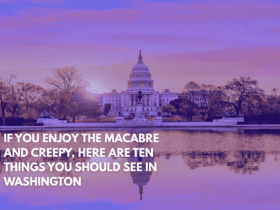Washington State is on the verge of enacting major changes to how much landlords can raise rent, with new legislation moving through the final stages in 2025. Here’s what renters need to know about the evolving legal landscape:
Proposed Statewide Rent Cap
- Legislative Status: In March 2025, the Washington House passed a bill capping annual rent increases at 7%. However, the Senate amended the bill, raising the cap to 10% plus inflation (as measured by the Consumer Price Index) and expanding exemptions, including for single-family homes.
- Implementation: If the final version is adopted and signed into law, the cap would take effect immediately and sunset on July 1, 2045.
- Notice Requirement: Landlords would be required to provide 90 days’ written notice before any rent increase, up from the current 60 days (and 180 days in Seattle).
Key Provisions and Exemptions
| Provision | House Version | Senate Version (April 2025) |
|---|---|---|
| Annual Rent Increase Cap | 7% | 10% + inflation (CPI) |
| Notice Required for Increase | 90 days | 90 days |
| Exemptions | None specified | Single-family homes, some corporate-owned units |
| Manufactured Homes | 5% cap | 5% cap remains |
| Effective Date | Immediate upon passage | Immediate upon passage; sunsets July 1, 2045 |
- Exemptions: The Senate version exempts single-family homes (about 30% of rental stock) and some corporate-owned homes, which may leave many tenants unprotected.
- New Tenancies: Landlords can set rent above the cap for new tenants, but the cap applies to existing tenants during their tenancy.
Current Law (Before 2025 Changes)
- No Statewide Rent Control: Landlords can currently raise rent as much as they wish, provided they give 60 days’ written notice (180 days in Seattle).
- Fixed-Term Leases: Rent cannot be increased during a fixed lease period unless both parties agree.
- Month-to-Month Tenancies: Rent can be raised with proper notice, and there are no limits on the amount.
Tenant Protections and Advocacy
- Tenant advocates are pushing for a stricter 7% cap and broader protections, warning that higher caps could still lead to displacement and hardship for renters.
- Landlord concerns include the ability to maintain properties and keep up with rising costs, especially if inflation is high.
What Should Tenants Do?
- Monitor the Law: The final version of the rent cap bill is still being negotiated. Tenants should watch for updates as the legislative session concludes.
- Check Notice Requirements: Regardless of the cap, landlords must give at least 90 days’ notice for rent increases (180 days in Seattle).
- Know Your Lease: Rent cannot be raised during a fixed-term lease unless both parties agree.
- Seek Help: If you receive a rent increase notice that does not comply with the law, contact a tenant advocacy group or legal aid for assistance.
As of April 2025, Washington is close to enacting a statewide cap on rent increases-likely 10% plus inflation, with important exemptions and a 90-day notice requirement.
The law is not yet finalized, and tenants should stay informed as the legislative process continues. Seattle and some other cities may have stricter notice requirements. Always review your lease and local ordinances for additional protections.
Sources:
- https://www.spokesman.com/stories/2025/mar/10/washington-house-of-representatives-passes-7-cap-o/
- https://tenantsunion.org/rights/rule-changes-rent-increases
- https://www.opb.org/article/2025/04/21/renters-call-on-washington-lawmakers-to-approve-rent-control-bill/
- https://www.washingtonlawhelp.org/resource/can-my-landlord-raise-my-rent
- https://www.theurbanist.org/2025/04/15/washington-senate-oks-rent-stabilization-bill-after-gutting-it/











Leave a Reply